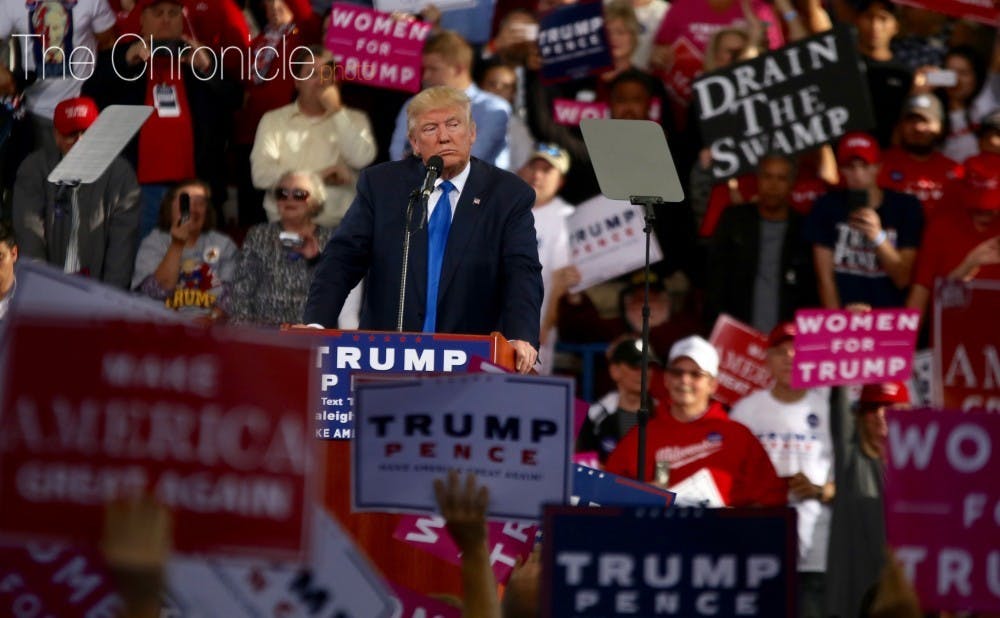Research on white Americans in political science has historically concentrated on racial prejudice, but a Duke professor is shifting the focus to white racial identity.
Ashley Jardina, assistant professor of political science, provides a new perspective on race and racial attitudes in American politics in her book "White Identity Politics." Released Feb. 28, the book highlights the significance of white racial solidarity, in addition to white racial prejudice, for understanding how whites with strong racial identities approach politics.
"Now, there are two forces in American politics with respect to white racial attitudes that really matter," Jardina said. "One is in fact racial prejudice; we know that racial prejudice still really informs a lot of white people's political preferences. But the second is also, independently, this desire that whites have to try to preserve their group's privileged status."
Jardina said that whites have begun to show these patterns since the 2000s, motivated by accumulated threats to their racial privilege. To examine these trends, she analyzed survey data from the American National Election Studies and from her own research.
She pointed to a couple of factors that have made white identity salient in recent years.
One factor motivating the trend Jardina found in white identity is immigration and the consequent demographic shifts in the United States, she explained. By the middle of this century, whites are projected to no longer be the majority in the nation's racial composition.

"It wasn't just about appeal to racism and racial prejudice, but also to this sense that America is changing, and the feeling for some whites that we have to protect that and preserve a particular image of America," Jardina said.
Another factor is the election of the first black U.S. president, Barack Obama, who won in part because of the diversification of the electorate, she said.
"All of these things combined have led this subset of whites to feel their power, status and stronghold over America's economic, political and social institutions is being eroded," Jardina said. "Subsequently, some whites are now much more aware of the importance of their racial identity.”
Although racial prejudice is an out-group sentiment—when one group dislikes another group—white identity is an in-group sentiment about favoring your own group.
“[White identity] is not necessarily motivated by a dislike for a member of [another racial group]. It's motivated by wanting to just keep the power, the status, the privileges that you have and the things you benefit from as a member of your own group,” Jardina said. “The consequence of holding these attitudes, however, helps maintain a system of racism.”
Jardina said she was driven to write the book because of the lack of research on white in-group protection and favoritism in politics.
“Then this research became even more relevant in 2016 when Donald Trump entered the scene and was clearly actively appealing to whites and to their sense of identity," she said.
Jardina noted that Trump's rhetorical and political push for anti-immigration policies tapped into white identity politics. Trump's base has remained consistent as he continues to appeal to this same subset of whites, she added.
But her research also suggests that Trump influenced a small subset of white identifiers to reject their racial identity.
“Since the 2016 presidential election, many whites have backed off from focusing on their racial identity, and I think that’s because they've come to see it as socially problematic," Jardina said.
Get The Chronicle straight to your inbox
Sign up for our weekly newsletter. Cancel at any time.

Mona Tong is a Trinity senior and director of diversity, equity and inclusion analytics for The Chronicle's 117th volume. She was previously news editor for Volume 116.

